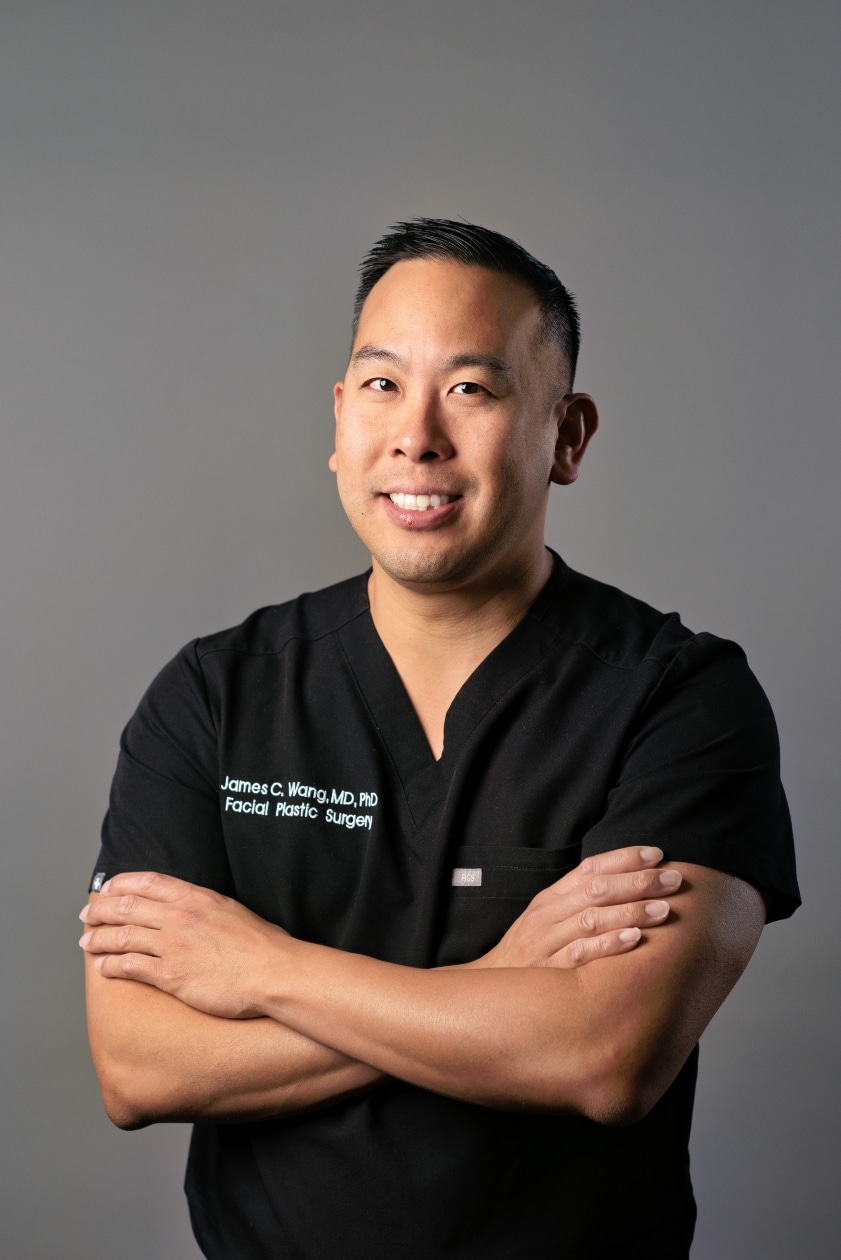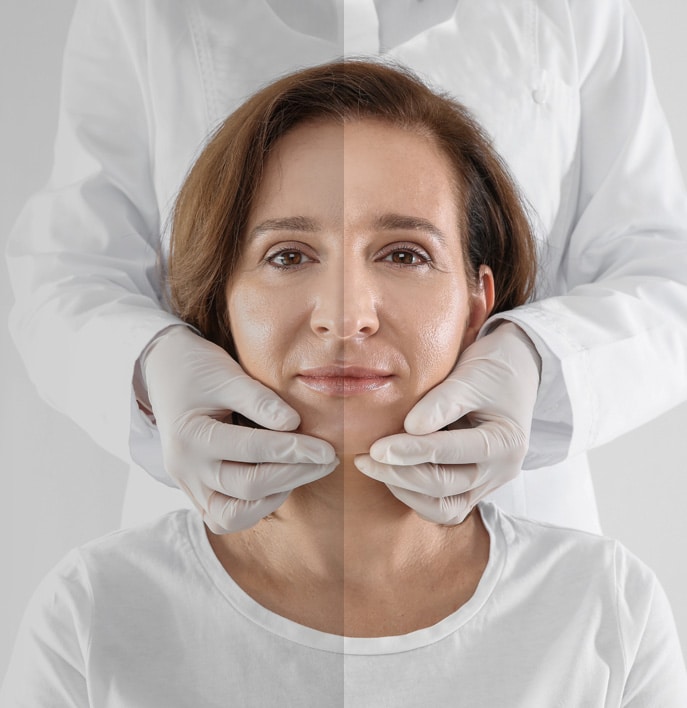Chin and Cheek Augmentation

Cheek and chin implants often help improve the overall symmetry of the face. Cheek implants can create more prominent, defined cheekbones, while chin implants can add definition to the jawline. The implants are custom-fit to each patient to ensure the best possible results and create a more harmonious balance in the face.

The Best Candidates for Facial Implants

Uneven chin, cheek, or jaw

Double chin or jowls need minimizing

Sharper jawline desired
Facial augmentation procedures, including cosmetic surgery, are becoming increasingly popular as people look for ways to improve their appearance. These procedures can be performed on their own or in conjunction with other facial procedures, such as a facelift, neck lift, or rhinoplasty.
This surgery may be especially beneficial for those who have concerns about their profile or those who hope to achieve a more refined appearance.
The implants used are custom-fit to each individual patient to ensure the best possible results. The surgeon will help you determine which areas of your face need augmentation the most.
Types Of Facial Implants
Chin and cheek augmentation are a part of facial implant surgery that contours your chin and cheeks, giving you the perfect jawline. While any area of your face can be augmented with implants, your chin, and cheekbones are the most common sites for facial implants.
Chin Augmentation

Chin Augmentation
Chin implants can be used to enhance the appearance of your lower face and jawline. They are usually made out of a flexible silicone. A small incision is made, either below the chin or inside the mouth, to eliminate any potential scars on the face. The procedure is usually done awake, though some patients choose to sleep for greater comfort during treatment.
Cheek Augmentation

Cheek Augmentation
A cheek augmentation lifts the cheeks by adding volume for a more youthful and balanced appearance. A small incision is made above the gumline of the upper teeth under each cheek. After the procedure, patients may expect 3-5 days of swelling in the cheeks.
Benefits of Chin & Cheek Augmentation
This treatment has the potential to change your face and improve your appearance in a variety of ways. It offers many benefits, including:

Enhance the neck's and the jawline's definition

Less visible wrinkles and fine lines

More balanced facial features

Reduce the double chin
Risks of Chin & Cheek Augmentation
The risks of a facial implant procedure are:

Muscle dysfunction

Bone resorption

Skin loss

Asymmetry

Infection

Contact
Dr. James Wang Today

If you're interested in learning more about chin and cheek augmentation or any other cosmetic surgery procedure, contact Dr. James Wang today to schedule a consultation. Dr. Wang is a fellowship-trained plastic surgeon with years of experience helping patients achieve their desired results. He will work with you to create a custom treatment plan that meets your needs.
Other Surgical Procedures
FAQs
On average, cheek implants can last ten to fifteen years without requiring revision surgery. However, it’s important to note that each individual’s experience may vary based on implant type, placement, and lifestyle choices.
This procedure involves adding volume to the cheeks; it does not directly affect the smile. However, patients may perceive a change in their smile due to the added fullness in the midface. A slightly altered smile is sometimes good; fuller cheeks lend a more cheerful or youthful appearance.
Chin implants can be either silicone or solid silicone. Surgeons typically insert most implants by making a small incision under the chin and over the jawbone. After placing the implant, surgeons secure it using screws or titanium plates. Scarring is usually minimal and will fade over time.
After surgery, most people experience temporary swelling and bruising, which will subside within a few weeks. You will likely have to wear a compression bandage for several days following surgery. Surgeons typically remove sutures within 7-10 days after the surgery. Recovery time varies from individual to individual, but most people feel comfortable returning to work within 1-2 weeks post-surgery.
You can expect visible improvement in the appearance of your chin after surgery. Chin implants are a safe and effective way to improve the facial profile and create a youthful appearance.
You may experience some swelling, bruising, and discomfort following the surgery. Your surgeon may prescribe pain medication and recommend using ice packs to help alleviate these symptoms. It would help if you also planned to rest and avoid strenuous activities.
Yes. While there may be some initial discomfort and swelling, most patients find that speech impairments subside within a few days to a week post-surgery. The implant shouldn’t adversely affect your speech, as it is typically placed beneath the muscle and beyond the vocal cords.
Yes. We usually recommend that people have a light, high-protein meal 7 – 9 hours after surgery. Protein will absorb slowly into the bloodstream and not overstress an already-stressed digestive system. Of course, you can’t eat anything too heavy or dairy products.
A chin implant procedure is an effective way to enhance and improve the overall appearance of the jawline. Surgeons surgically insert the implant made of silicone or other biocompatible materials to add volume and projection to the chin.
After chin implant surgery, your surgeon will likely prescribe medication to manage discomfort and promote healing. Pain medication, such as acetaminophen or ibuprofen, may be prescribed for short-term relief. Doctors may also prescribe antibiotics to prevent infection.



